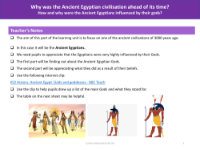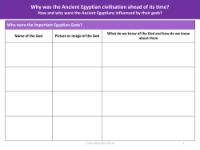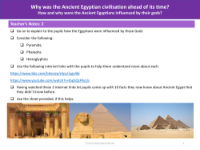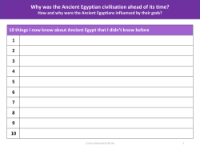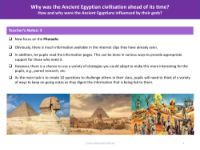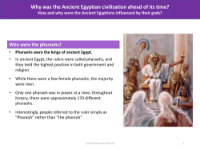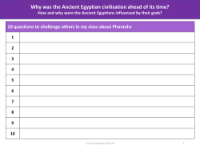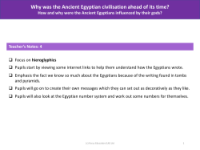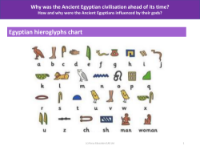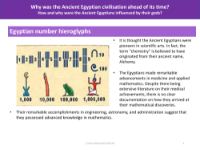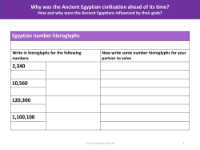How and why were the Ancient Egyptians influenced by their gods? - Presentation
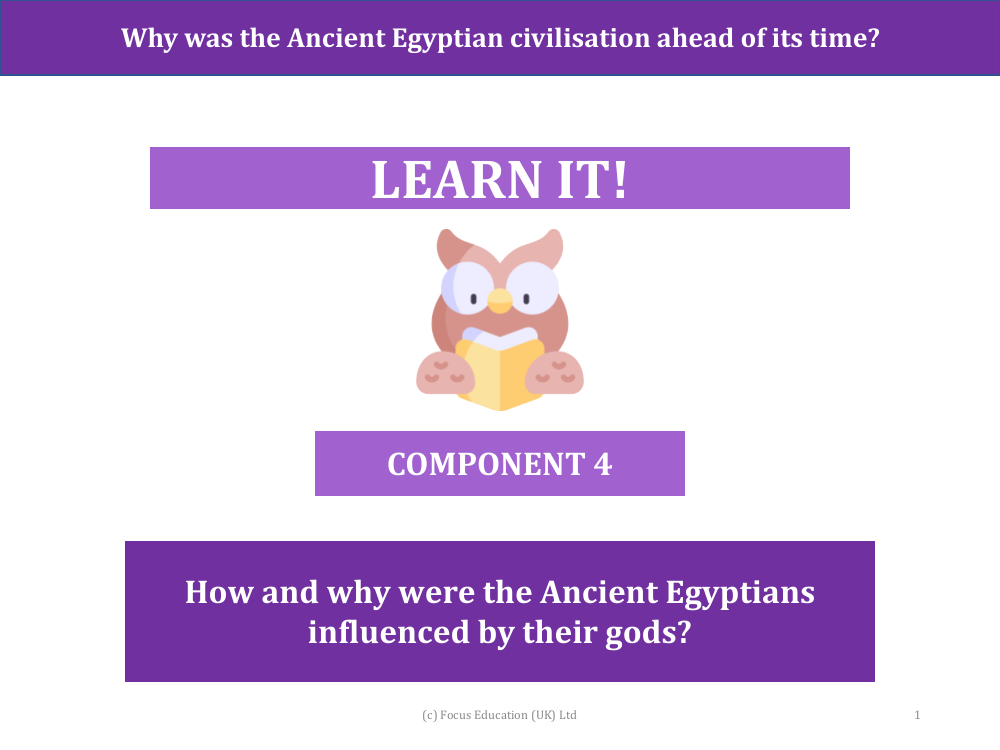
History Resource Description
The Ancient Egyptians were deeply influenced by their gods, which played a central role in their civilisation, considered to be ahead of its time. The educational materials from Focus Education explore how the Egyptians' religious beliefs shaped their daily lives, cultural practices, and advancements. Students are encouraged to learn about the pantheon of Egyptian gods, understanding the significance of each deity and the values they represented. The curriculum suggests using multimedia resources to help pupils compile a list of the main gods and their attributes. Following this, the influence of these deities on Egyptian society is examined, particularly in the creation of monumental architecture like the pyramids, the establishment of pharaohs as divine rulers, and the development of hieroglyphic writing.
The teaching resources delve into the role of the pharaohs, who were seen as living gods or divine representatives, depending on the era, and held the dual titles of king and High Priest. The pharaohs were believed to own all the wealth in Egypt and were responsible for maintaining Ma'at, the concept of balance and harmony. The curriculum also covers the sophisticated governmental structure, with the Vizier acting as the pharaoh's spokesperson and a chain of officials reporting up the hierarchy. Students are tasked with formulating questions about pharaohs to challenge their peers, fostering an interactive learning environment. The significance of hieroglyphs, the ancient Egyptian writing system, is also emphasised, highlighting how much of what is known about this civilisation comes from inscriptions in tombs and pyramids. Pupils are invited to create their own hieroglyphic messages and explore the Egyptian numerical system, further appreciating the advanced scientific and mathematical knowledge of the Ancient Egyptians.
